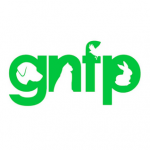Months after the equine community lost the Kentucky Derby Champion Barbaro to laminitis, veterinarians will gather in Seattle, Wash., at the 2007 ACVIM Forum, June 6 ” 9, 2007, to discuss new ways to prevent and manage the disease that eventually lead to Barbaro being euthanized.
Laminitis, commonly called founder, is a painful inflammation of the foot occurring when the lamina, or sensitive tissue beneath a horse’s hoof wall, separates from the bone. It is estimated that up to 75 percent of those afflicted ultimately develop severe or chronic lameness and debilitation. The disease is second only to colic as the biggest cause of death in horses.
Barbaro was euthanized on January 29, 2007, due to the effects of laminitis. After winning the 2006 Kentucky Derby, the colt broke his right rear leg two weeks later in the 2006 Preakness Stakes, ending his racing career. After Barbaro’s fracture was put in a cast, his other three legs developed laminitis due to the bearing of the 1,200 pound horse. Following months of treatment, Barbaro’s veterinarians and owners determined he could not be saved.
“All horses and ponies are at risk for laminitis, not just racehorses,” said Dr. Ray Geor, an ACVIM Board-certified Large Animal Internist at the MARE Center at Virginia Tech, and speaker at the 2007 ACVIM Forum.
Dr. Geor’s session, Pasture-Associated Laminitis, will discuss the risk factors associated with laminitis, focusing on the combination of an overweight horse and exposure to pasture. Three other sessions will disseminate important information on this serious disease to the equine veterinary community, including its pathophysiology, diagnosis, and management.
The 2007 ACVIM Forum is four days of continuing education for an estimated 4,000 general and specialty veterinary practitioners, technicians, and veterinary students from over 40 countries focusing on new, unpublished data, including a wide range of topics from veterinary internal medicine, oncology, neurology, and cardiology.
Over 70 sessions specifically dedicated to large animal healthcare will be presented, including:
- Typical & Atypical Scrapie in Sheep & Goats
- Diagnosis & Management of Equine Metabolic Syndrome
- Troubleshooting Dairy Calf Pneumonia Herd Problems
- Equine Forum Short Course on Corneal Ulcers & Diseases
- Consensus Statement Draft on Equine Herpesvirus-1 (EHV-1) Infections
- Chronic Wasting Disease
The American College of Veterinary Internal Medicine (ACVIM) is the national certifying organization for veterinary specialists in large and small animal internal medicine, cardiology, neurology, and oncology. The ACVIM hosts an annual continuing education meeting (ACVIM Forum) each year where cutting-edge information, technology, and research abstracts are showcased for the veterinary community. For more information, including an online program and virtual press room, please visit www.ACVIMForum.org.
